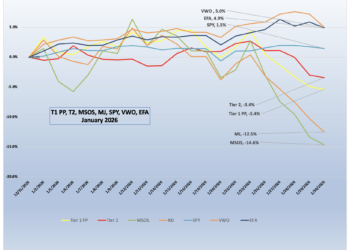Arkansas’ own hemp program manager was unclear about what the state’s definition of hemp meant ahead of the passage of Act 629, which effectively banned hemp-derived cannabinoid products, according to a new court filing in the ongoing legal battle for hemp.
The plaintiffs, who are a collection of shops that sell vapes and other HDC products, have been arguing that Act 629 is too vague and should be preempted by the 2018 Farm Act.
They were able to obtain a court-ordered restraining order barring the state from enforcing the hemp ban, which is currently being heard in the Eighth Circuit Court of Appeals. At the same time, the underlying effort to void the new law has continued in the lower federal court. The plaintiffs have submitted evidence showing the state’s own regulators believed the law, as proposed, was too vague.
“Plaintiffs have uncovered smoking-gun evidence — an official memorandum from the Hemp Program Manager for the Arkansas Department of Agriculture’s Hemp Program — proving beyond any doubt that even the Defendants believe Act 629 is unconstitutionally vague as a matter of both fact and law and that the Defendants believe that the definition of industrial hemp in Act 629 is impermissibly narrower than the definition in the 2018 Farm Bill,” said the plaintiffs in an Aug. 28 brief to support their motion for partial summary judgment before the Eastern U.S. District Court of Arkansas in Bio Gen LLC v. Sanders.
Caleb Allen, industrial hemp program manager at the state’s Department of Agriculture, wrote that he was confused about how the legislature was proposing to change the legal definition of hemp in a memo submitted to the Senate while it was deliberating on SB 356 – which would become the hemp bill.
The 2018 Farm Act creates a threshold for legal hemp of 0.3% for the content of delta-9 THC. Anything within that limit is federally legal, including other cannabinoids and derivatives such as delta-8 THC and THCA. Cannabis above that 0.3% limit is classified as marijuana under the Controlled Substances Act and is federally illegal.
Much of the legal debate in this case and around the country is whether states can further restrict or ban the level of other intoxicating HDCs as manufacturers have learned how to increase potency in finished consumable products.
How many apples are in an orange?
Within Act 629, the definition for hemp is set as any cannabis plant that is “not more than three-tenths of one percent (0.3%) of delta-9 tetrahydrocannabinol in the hemp-derived cannabidiol on a dry weight basis.”
Cannabidiol, or CBD, is a separate substance than delta-9 THC. Both are types of cannabinoids, which is the term that the legislature may have intended to use instead of “cannabidiol,” Allen said in his memo. Delta-8 THC can be derived from CBD.
Allen appeared confused as to whether the bill’s intent was to limit THC or CBD to 0.3%, while noting that it would be near impossible to grow hemp without exceeding that amount of CBD.
“If an [Arkansas] hemp farmer cannot grow a crop beyond 0.3% CBD, the hemp farming industry in Arkansas is done,” said the memo. “If the lawmakers want to delineate between hemp, hemp products, and hemp-derived products, this is not the way to do it. The hemp program walks away with more questions than answers after reading this definition change.”
The plaintiffs also argued that mandating the total amount of delta-9 THC be tied to a ratio with the amount of CBD would be as difficult as limiting CBD in the first place.
“Act 629’s definition of hemp equates to asking how many apples are in an orange or how many Toyotas are in a Ford,” said the complaint. “Based on this nonsensical definition, farmers awaiting harvest and those intending to plant seeds have no idea how to grow a plant which is required to meet a delta-9 THC concentration level that is a specific fraction of the CBD concentrations. No seeds on the market can guarantee this ratio, nor can hemp be tested to meet Act 629’s definition.”
Allen further argued that the legislature should have gone back to the original language in the bill that matched the legal threshold of THC to the federal government’s limit, instead of directly stating the 0.3% figure, as there’s some anticipation the 2024 Farm Bill may increase the threshold.
This case is one of several working their way through the federal court system addressing the legality of state-wide hemp bans.
More states are passing bans on hemp-derived cannabinoids, with some of them facing challenges in federal court. Aside from the Bio Gen case in the Eighth Circuit, the Fourth Circuit Court of Appeals is considering a case in which Virginia’s HDC ban was upheld. Meanwhile, the Tenth Circuit Court of Appeals is considering a case out of Wyoming where the court upheld that state’s HDC ban.
Both sides of the Bio Gen case are scheduled to appear before the Eighth Circuit for oral arguments pertaining to the temporary restraining order on Sept. 24 at the Thomas F. Eagleton Courthouse in St. Louis, Mo.
In the lower court, the judge awaits the state’s response to the partial motion for summary judgment.












